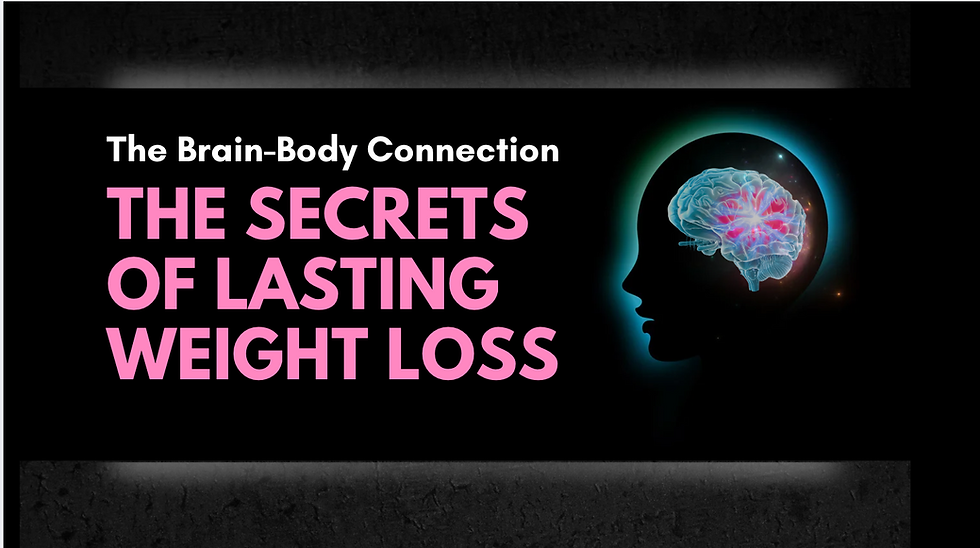Strengthening Friendships & Building Lasting Connections
- Carrie Jo

- Feb 28, 2023
- 4 min read
Updated: Apr 18, 2023
Friendships are an essential part of life, but they can also be incredibly hard. Fortunately, understanding why friendships are so difficult can help you navigate the challenges of maintaining meaningful connections.

To be honest, friendships don't always come easily and naturally to everyone.
In fact, if you feel like it's way harder to make friends as an adult than it was when you were younger, you're not wrong. The challenge is that the essential building blocks of friendship get harder as you get older.
Some people may have social challenges or suffer from self-doubt and insecurity when they think about getting close to someone and making a connection. That can lead to feelings of shyness or reluctance to interact with new people, or even past friends.
Another tough one is that not everyone has the same opinions and perspectives on the world. This can often lead to arguments, misunderstandings, and hurt feelings.
Finally, friendships can be hard because they require trust and dedication. Not only do you need to show up to make plans, listen to each other, and be supportive, but you also need to be able to communicate clearly and honestly. This means being vulnerable. It can also be difficult to trust someone enough to be honest with them in the first place.
But just as friendships can be hard, they are also some of the most rewarding, amazing relationships that you can have. They bring so much fulfillment to our lives.
5 Ways that you can Build & Maintain Strong Friendships
Build and Maintain Trust
Trust is the foundation of any relationship. If you can't trust each other as friends, you're off to a pretty rough start. Not only is it hard to start a friendship with someone that you don't trust, it is nearly impossible to build a lasting bond without trust. Be honest with yourself and with your friends. It's not always easy, but it is critical to having strong friendships.
Communicate. Communicate. Communicate.
Just as trust lays a solid foundation for friendships, so does communication. Misunderstandings, lack of clear communication, and differences in communication styles can lead to conflicts and strained relationships. When you get to know someone, pay attention to their communication style. Do they like to joke around when they're nervous? Are they an introvert and only share information with people who they feel comfortable with? When you understand their communication style, it helps foster stronger friendships.
Prioritize Quality Time
Make sure to set aside time on a regular basis to spend with your friends and bond with them. I have friends that I only see in person a couple of times a year, but we always prioritize that time together. Phones get put away or silenced and we focus each other during that time. And, of course, we also talk, text and stay in touch as much as possible during those times.
Be Available
Show that you’re available for your friends and show them how valuable they are to you by scheduling time for just the two of you or for group gatherings. My friends notice if I always say "no" when they invite me out or if I am always unavailable. So I make an effort to be available whenever possible. It shows them that I am invested in our friendship and want to hang out with them.
Be Genuine and Vulnerable
Show your friends you care about them and mean what you say by being genuine and authentic in your interactions with them. I tell my friends I love them. I tell them how much they mean to me and how much I value having them in my lives. And they do the same for me. By doing this, we feel more connected, trusted, valued and want to spend even more time together. I also figure out their love language. Yep. It's not just for your marriage! I learn what things they value the most and try to do nice things that they will appreciate.

Practice Forgiveness
Be willing to forgive and accept mistakes made by your friends and values the relationships. This one can be hard. Forgiveness is hard. But if you value the friendship enough, you will be willing to give your friends a break. Everyone makes mistakes and deserves second chances. This does not mean that you should let someone take advantage of you or hurt you.
Demonstrate Mutual Respect
Show respect and gratitude to your friends and remain open-minded to their perspectives. It can also be difficult to accept someone who has done something you don't agree with or approve of. This can put a strain on the relationship if one person is unwilling to see the other's point of view. When you think about whether or not you want to have the argument, think about if the argument and being right is more important than the friendship itself. Often it is not.
Despite the challenges, friendships are worth the effort. When the going gets tough, remember that the rewards of having a friend who accepts you, supports you, and cares about you can be immeasurable. With understanding, respect, and forgiveness, even the most difficult of friendships can be cultivated and given a chance to thrive.
If you're having trouble with trust, communication, respect, forgiveness or any other relationship issues, let's talk. Friendships don't have to be hard if you have a partner to help you through the challenges. Book a complimentary "Dream Big" session with me to learn how I can help.



